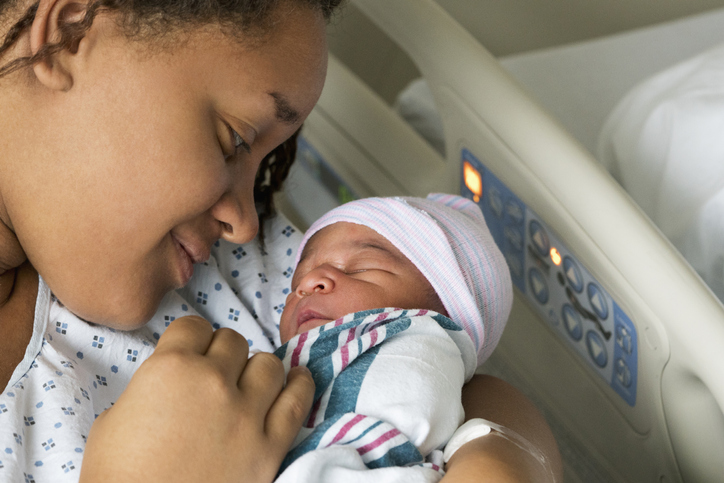The Highs And Lows Of Breastfeeding - Page 7
Share the post
Share this link via
Or copy link

Source: FatCamera / Getty
Breastfeeding can be a beautiful experience for both mom and baby, but it’s not a great fit for everyone. While pediatricians recommend that moms nurse their babies until they’re at least six months old, it’s a personal decision that each mother has to make for herself. If you’re curious about breastfeeding and are wondering if it’s right for you, this helpful list highlighting the pros and cons may help to guide you in your decision-making.
Bonding
According to a study published in “Developmental Psychology,” breastfeeding has been linked to maternal sensitivity benefits and a deepened connection between mom and child that can last up to a decade.
“We had prior research suggesting a link between breastfeeding and early maternal sensitivity, but nothing to indicate that we would continue to see effects of breastfeeding significantly beyond the period when breastfeeding had ended,” explained the study’s lead author and professor of psychological science, Jennifer M. Weave. “Mothers who were more sensitive were able to support their children’s autonomy, to maintain a positive emotional tone, and were involved and invested in their interactions with their child.”
Love MadameNoire? Get more! Join the MadameNoire Newsletter
We care about your data. See our privacy policy.
Of course, breastfeeding isn’t the only way new mothers can bond with their babies and this study does not suggest that moms who choose another avenue have a weaker bond with their children.

Source: Catherine McQueen / Getty
Cracked or sore nipples
Breastfeeding can be painful — especially during those first few weeks. Frequent nursing sessions can leave nipples sore and cracked. The good news is that your body adjusts over time and there are creams that can help. The bad news is that teething comes with its own set of temporary struggles.

Source: Camille Tokerud / Getty
Health benefits for baby
In addition to providing babies with the perfect blend of vitamins, fat, and protein, breastmilk provides infants with antibodies that help to ward off bacteria and viruses. Breastfed babies are also less likely to acquire ear infections, respiratory illnesses, asthma, and allergies.

Source: Courtney Hale / Getty
Less freedom
When you’re your baby’s only source of food, breastfeeding can feel like imprisonment at times. Being away from your baby takes meticulous planning to ensure that there is enough milk available in your absence. Additionally, when you’re away from your baby for an extended period of time, such as an overnight trip or work, it can feel like you are married to your breast pump as you need to maintain a regular pumping schedule to to replenish your freezer stash and keep your milk supply from dropping.

Source: LeoPatrizi / Getty
Postpartum weight loss
While this is not every mother’s story, many new moms report that breastfeeding helps them to reach their postpartum fitness goals faster. According to the Mayo Clinic, when breastfeeding, you burn calories to make milk and nurse the baby. This can result in weight loss for moms who are burning more calories than they’re taking in.

Source: FatCamera / Getty
Weaning
Weaning can be difficult for a variety of reasons. For one, infants and toddlers quickly become accustomed to breastfeeding and may be resistant to the weaning process. It can also be hard on moms who may be plagued with feelings of guilt. Some even experience bouts of depression after weaning as a result of what some medical professionals believe to be fluctuating hormones.

Source: Ariel Skelley / Getty
Health benefits to mom
In addition to offering health benefits for babies, breastfeeding is also helpful for moms. Breastfeeding has been linked to a decreased risk of ovarian cancer and osteoporosis. Breastfeeding causes the release of the hormone oxytocin, which also helps the uterus return to its pre-pregnancy size. Lastly, breastfeeding may assist in the reduction of uterine bleeding after birth.

Source: Diversity Photos / Getty
Faster nighttime feedings
For their first few months of life, many newborns wake every two hours for feedings. Getting out of bed and preparing bottles can be hard on moms who are already sleep-deprived. Breastfeeding helps because there are less steps that stand between them and their precious sleep during these frequent night wakings.

Source: Stephen Welstead / Getty
Easier digestion than formula
According to the University of Utah, breast milk is “appropriately balanced with protein, carbohydrates, fat, vitamins, minerals, digestive enzymes, and hormones. It also contains the proteins casein and whey,” which makes it easier for babies to digest.

Source: Hiraman / Getty
Less bottle prep
Moms who breastfeed will most likely spend less time preparing bottles, which is convenient. While moms who work outside of the household may find that they spend a lot of time pumping milk when they’re away from their babies, they will definitely save time on bottle prep when they’re together.
Related Tags
breastfeeding-

Meet Dominique Fils-Aimé, The Haitian-Canadian Star Redefining Jazz For A New Generation: ‘This is My Vision' [Exclusive]
-

Cooking With Purpose — How Brittney Williams Honors Her Caribbean Roots Through Food
-

9 Famous Lesbian Women Who Were Married To Men
-

Purpose Behind The Lens: How Nate Edwards Films The Extraordinary Inside The Everyday








